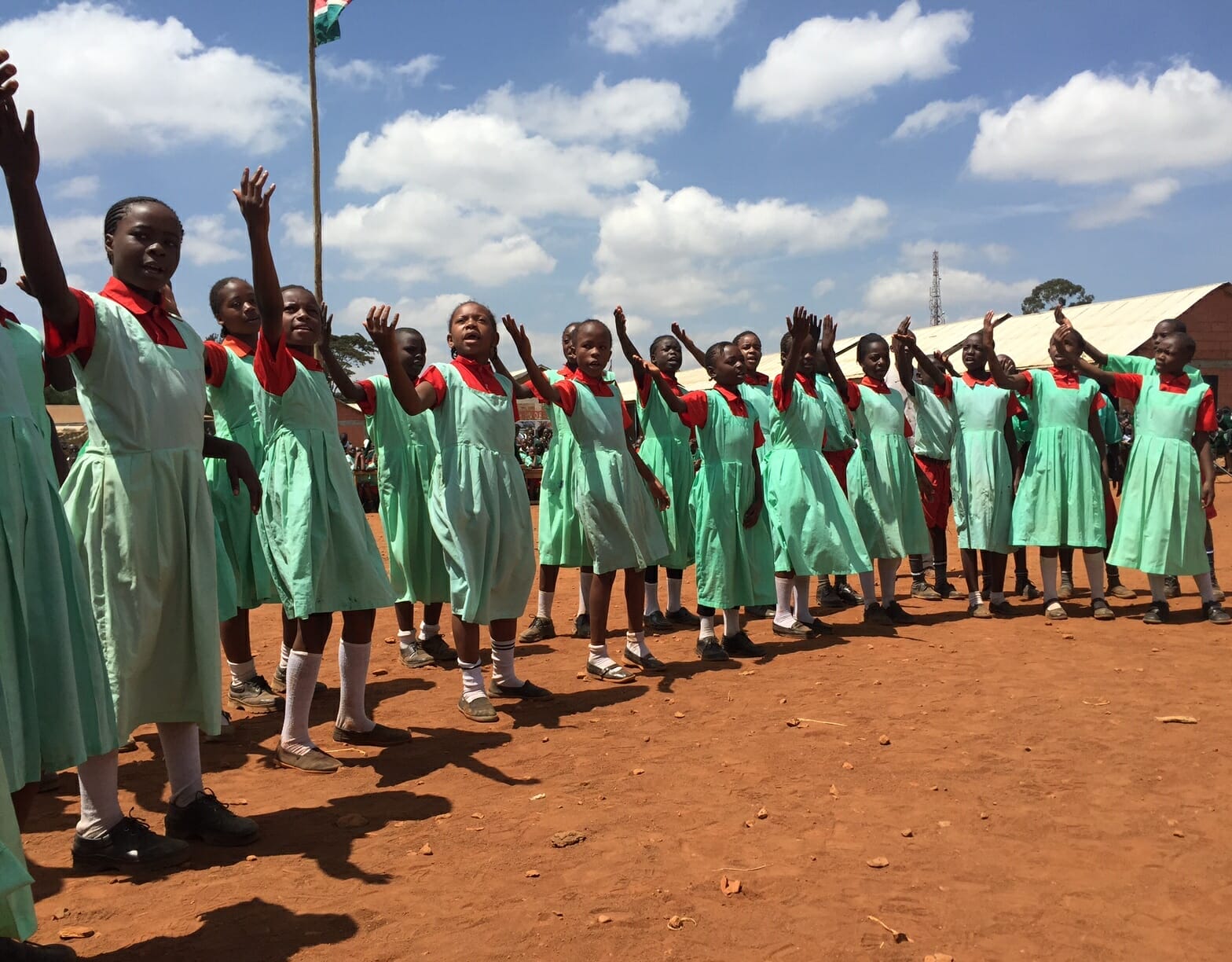Global Communities has worked across sectors in Kenya since 2004 addressing some of the most pressing challenges of the time, including a large percentage of the population of people living in poverty, unemployment, the HIV epidemic and a heavy reliance on agriculture combined with environmental degradation.
The changing climate has burdened pastoralists and agriculturalists alike. Despite agriculture being a major contributor to economic growth in Kenya, many farmers still operate on a subsistence scale due to limited access to finance, inadequate access to quality inputs, reliance on rain-fed approaches and limited access to reliable markets. Similarly, pastoralists face challenges in finding adequate pasture and water. For both agriculturalists and pastoralists, even small changes in weather can have a devastating impact on lives and livelihoods. Global Communities works with these communities on innovative solutions to safeguard their earnings against shocks and stresses and sustainably protect their investments.
Despite the challenges, Kenya has a vibrant economy with a growing middle class providing unique opportunities for growth. Its burgeoning cooperative movement is considered the leading cooperative movement in Africa with more than 14 million members.
Global Communities is bringing its rich history of cooperative development around the world to help launch worker cooperatives in urban areas—an innovative model new to Kenya—along with supporting business development for traditional cooperatives operating in the agriculture sector. We are also proud to support local partners by building awareness of good practices in cooperative policy and galvanizing public participation to bolster national cooperative law reform in both the policy and legislative arenas.
In addition to our work with cooperatives, we have also been working with local partners to fight the HIV epidemic. We have seen positive results from focusing intensely on behavior change among at-risk populations. In Kenya, poverty, substance abuse and low levels of education put young people, especially girls, at increased risk for HIV infection. Global Communities works with several partners to mitigate the HIV epidemic by ensuring access to quality health services along with social and economic empowerment of adolescent girls and young women to reduce new infections. At the same time, we prioritize capacity strengthening to equip local partners to sustainably deliver high quality services and receive direct U.S. government funding, supporting their journey to self-reliance.
Strengthening Local Capacity to Fight the HIV Epidemic
In 2021, Global Communities began partnering with St. John’s Community Centre in Nairobi to implement the “4BetterHealth” program funded by the U.S. Agency for International Development (USAID). The program is designed to improve the quality of life of orphans and vulnerable children and their families, particularly those affected by HIV/AIDS, by providing greater access to and use of quality health and social services. Building on previous programs and expertise in this area, Global Communities is co-implementing with partners and the county government to ensure quality of services, adequate human resources, and strengthened health systems to meet the needs of the community. In addition to supporting local partners to deliver high quality services, we provide capacity strengthening support to ensure they have the systems, structure, knowledge and capacity to manage USAID funding. Through this process, Global Communities provides a pathway to local partners’ self-reliance and ability to directly apply for donor and local government funding and sustain epidemic control.

Strengthening Kenya’s Cooperative Movement
Global Communities is continuing its cooperative development legacy in Kenya through the Cooperative Leadership, Engagement, Advocacy and Research (CLEAR) program. Co-created with USAID’s Cooperative Development Program, CLEAR is innovating in the development of worker cooperatives, a relatively new model for Kenya. CLEAR promotes youth and women’s socio-economic empowerment through cooperatives by tapping into existing opportunities in the service industry. One example is the women-only Women in Sustainable Energy and Entrepreneurship (WISEe) cooperative started by female engineers who install solar panels in residential and commercial buildings. Another is the Vision 4 Youth Housing Cooperative, which the CLEAR project has accompanied in its journey from a community-based organization to a registered cooperative. Vision 4 Youth has raised substantial capital for housing and construction and its youth are active in making interlocking blocks for the members’ new houses. Further, the national government of Kenya is at a critical juncture in working with county governments to reform cooperative policy. Global Communities has played a seminal role in supporting this process by providing training in public policy making processes and key aspects of progressive cooperative policy to county and central government officials. CLEAR also helps to convene key stakeholders, including Kenyan cooperatives, government, nongovernmental organizations, local universities, unions and apex organizations who are working toward a historic new cooperative law and national policy in line with the Kenyan constitution.
Empowering Adolescent Girls & Young Women to Reduce New HIV Infections
Since 2015, Global Communities has been helping adolescent girls and young women in Kenya thrive through the Determined, Resilient, Empowered, AIDS-free, Mentored and Safe (DREAMS) initiative. This public-private partnership focuses on reducing new HIV infections among adolescent girls and young women in 10 sub-Saharan African countries. Leading the partnership in Kenya, Global Communities uses a two-pronged approach — blending customized, individual support to adolescent girls and young women, and strengthening the education, health, social and economic systems — to create a positive, lasting impact on at-risk adolescents and young women and the greater community. Men and boys are also included in outreach to educate and equip them with the knowledge and skills they need to join the fight against gender-based violence, challenging outdated practices and attitudes towards women in their communities. By addressing the push and pull factors that contribute to new HIV infections, the community at large is empowered to take control of their health. To date, Global Communities has reached more than 22,000 young women between the ages of 10-24, both in and out of school, with lifesaving interventions around knowledge and skills for preventing HIV, other sexually transmitted infections and unintended pregnancies; accurate information on interacting safely with male sexual partners; prevention and mitigation of all forms of gender-based violence; comprehensive health services; education and economic support, and various forms of social protection including cash transfers to help the girls access services that will keep them healthy, or if they are unwell, improve their health.
Agribusiness Investment for Market Stimulation (AIMS)
Starting in 2015, Global Communities implemented the U.S. Department of Agriculture (USDA)-funded Agribusiness Investment for Market Stimulation (AIMS) program. AIMS bolsters trade in key agricultural sectors in Kenya, Tanzania and Malawi by increasing access to financing, markets and capacity building for small- and medium-sized agribusinesses (ASMEs) including cooperatives and farmer-based organizations. AIMS supports various agriculture value chains including cereals, pulses, legumes and livestock, which includes dairy farming. Any actor within these value chains right from production, aggregation, processing, transport, storage and distribution are eligible for AIMS’ support. The program has partnered with financial service providers including commercial banks, microfinance banks, savings and credit cooperative organizations and credit only institutions in offering technical assistance on best practices in agribusiness finance. To address operational challenges faced by ASMEs, AIMS has been facilitating provision of advisory services to ASMEs in various thematic areas including bookkeeping accounting and tax compliance, business plan development, human resources, general legal services on business registration, contracts and leases, quality assurance and standards certifications and sales, marketing, advertising and packaging. AIMS is also working with the financial service providers and other agribusiness stakeholders in its market-based approach to broaden its outreach and ensure that as many ASMEs as possible access finance, markets and capacity development services. AIMS also includes a $50 million loan guarantee facility backed by the United States International Development Finance Corporation.
Since October 2019, AIMS has been operating in Malawi and Kenya, focusing mostly on enhancing increased utilization of the loan guarantee facility. In Kenya, AIMS’ key partner in provision of financial services under the loan guarantee facility is I&M Bank, a commercial bank regulated by the Central Bank of Kenya. AIMS is currently working closely with the bank to identify ASMEs in need of financial access, assess and enhance their capacity, and finance them to upscale their operations.
AfriScout: The Shepherd’s Eye in the Sky
AfriScout is revolutionizing the way pastoralists in Africa find pasture and water for their animals using the power of satellite and mobile technology. Developed by Global Communities (formerly PCI), the AfriScout mobile app provides pastoralists with current information on water and vegetation conditions using localized community grazing maps. This data helps them make more accurate and cost-effective migration decisions, improve pasture management and reduce the risk of herd loss. The app was launched in Kenya in 2018. AfriScout has mapped 429,000 square kilometers of communal grazing lands in Kenya alone, and has over 10,000 registered app users across Kenya, Ethiopia and Tanzania.
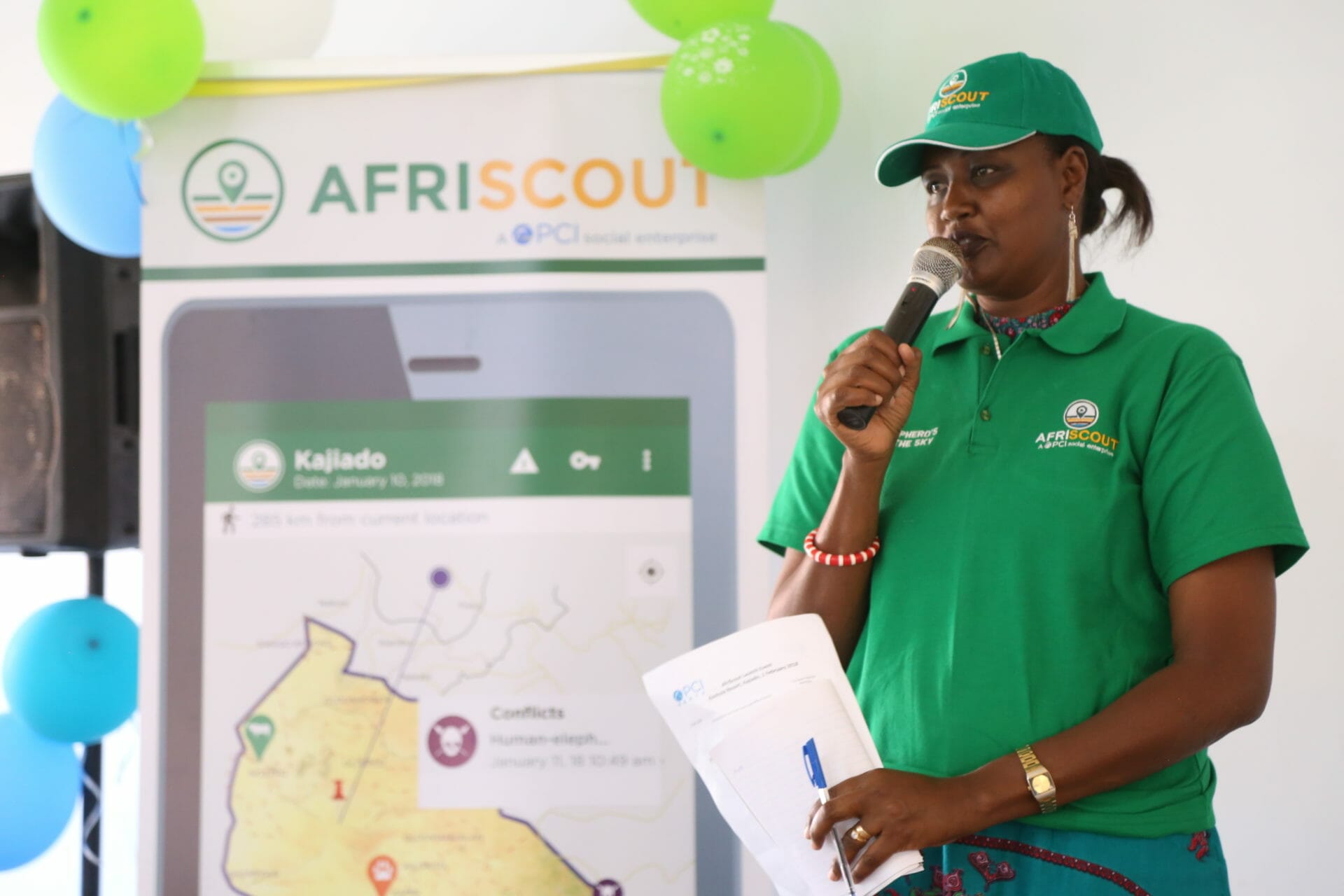
3,600
index-based livestock insurance policies sold to protect pastoralists against future shocks
238
staff trained from a total of 18 financial institutions on agriculture lending practices, resulting in improvements in internal loan processes and development of new agriculture loan products through AIMS
3,000
farmers who have adopted Management Information System platforms by Meru Greens, enhancing efficiency of data availability on harvests, commodities available on the farm, and automated payment systems to growers, reducing paperwork and lowering operational costs
Recent Programs
Protecting Herds Against Shocks and Stresses with Mobile-Based Insurance
To help Kenyan pastoralists sustainably improve and protect their assets, Global Communities partnered with Takaful Insurance of Africa Limited to sell index-based livestock insurance bundled with the AfriScout mobile application. Takaful’s Sharia-compliant insurance product — Index-Based Livestock Takaful (IBLT) — uses predefined drought conditions to trigger automatic payments for pastoralists at risk, preventing negative coping strategies that often compromise pastoralists and herds. When the index pays out to policyholders, payments are delivered via mobile money, which they can use to purchase fodder and water, or to cover costs for more distant scouting and grazing. Rather than replacing an animal after it dies, payouts allow pastoralists to keep their herds healthy, even in times of drought-related shocks and stresses. Bundled with AfriScout’s custom-tailored grazing maps to help pastoralists more precisely and cost-effectively plan migration, this partnership combines mobile technology with traditional knowledge to strengthen the pastoral system, proactively address risks and increase resilience to shocks and stresses. To date, over 3,600 IBLT policies have been purchased by pastoralists, with over 1,100 bundled with the AfriScout mobile app.
Understanding the Impact of Cooperatives
What difference do cooperatives make? In partnership with the U.S. Overseas Cooperative Development Council, Global Communities helped to answer this question as part of a multi-year, multi-country research project to study the effects that cooperatives have on the social and economic well-being of their members, and the broader effects they have in the communities where they are located. The study covered four countries: Poland, Kenya, Peru and the Philippines and surveyed over 4,000 cooperative members and 4,000 non-members. Findings showed that cooperative members are more likely than the general population to have average or above average incomes and are less likely to be poor or very poor. Similarly, cooperative members generally have great social capital including support in the community and people they can trust. Although cooperatives are not often perceived as providing social programs or benefits, they impact social capital by increasing trust among members compared to non-members. Overall, cooperatives are believed to positively influence their broader communities by attracting outside investors and contributing to the quality of life and work of community residents. The overwhelming majority of respondents were very satisfied with their cooperative membership and intended to remain in their cooperatives for at least five years. Each country study also included a qualitative “Legacy Study,” which reviewed the history of cooperative development programming in each country and the ongoing impact they created. The results of this study provided insights into cooperative performance and sustainability and are being used to shape our future programs and relationships with cooperatives around the world.
Our Work in Kenya
HIV/AIDS & Infectious Diseases
Preventing the Spread of Infectious Diseases
Nutrition
Evidence-Based Interventions for Better Nutrition
Adolescent Health
Easing the Transition to Adulthood
Climate Action
Meeting the Challenge of Climate Change
Enterprise & Market Development
Promoting Entrepreneurship and Market Linkages
Employment & Job Training
Supporting Inclusive Economic Growth
Expanding Economic Opportunity
Supporting Small and Medium-Sized Businesses and Community Savings and Lending Groups
Gender Equality & Social Inclusion
Lifting Marginalized Voices and Investing in Women as Leaders and Men as Allies
Health
Combating Disease, Improving Nutrition, and Ensuring Healthy Mothers, Children and Adolescents
Economic Opportunity
Advancing Job Training and Market Linkages for Sustainable Livelihoods
Resilience
Enhancing Food Security, Sustainable Agriculture and Water Management in Climate-Affected Communities
Financial Inclusion
We deliver essential solutions to complex development challenges, resulting in a more just, prosperous and equitable global community.
Resources
Toolkits & Manuals
Cooperative Businesses: A Training Guide for Cooperatives & Developers
Kenya’s cooperative movement is flourishing, and the worker cooperative model is gaining traction as a catalyst for equitable economic development and job creation. While worker cooperatives are relatively new to Kenya, their potential impact is being recognized. The USAID Cooperative Development Program CLEAR (Cooperative Leadership, Engagement, Advocacy and Research implemented by Global Communities, is dedicated…
Briefs & Case Studies
Case Study: Meru Central Coffee Cooperative Union’s (MCCCUs) Business Development Journey with Global Communities in Kenya
The Cooperative Leadership, Engagement, Advocacy & Research (CLEAR) program, implemented by Global Communities from 2018 to 2023 and made possible through the support of USAID’s Cooperative Development Program, undertook a strategic initiative to strengthen Kenya’s cooperative ecosystem. Recognizing the pivotal role of cooperatives in various sectors, CLEAR centred its efforts on delivering targeted technical assistance…
Briefs & Case Studies
Case Study: Limuru Dairy Farmers Cooperative Business Development Partnership with Global Communities in Kenya
Dairy farming plays a pivotal role in Kenya’s economy, contributing significantly to both economic growth and the nutritional well-being of the population. According to the Kenya Dairy Board, the dairy sector accounts for approximately 14% of the country’s agricultural GDP, generating over 1 million jobs at the farm level and an additional 500,000 jobs in…
Briefs & Case Studies
Learning Brief: Insights Gained from USAID Cooperative Development Program – CLEAR: Assessing the Impact of Women’s Engagement in Cooperatives
USAID Cooperative Development Program (CDP) – Cooperative, Leadership, Engagement, Advocacy & Research (CLEAR) (2018-2023), implemented by Global Communities, was designed to support and enhance Kenya’s cooperative ecosystem. CLEAR focused on promoting youth and women’s socio-economic empowerment through the cooperative business model by tapping into existing opportunities in the service industry.
NEWS
Latest stories from the blog
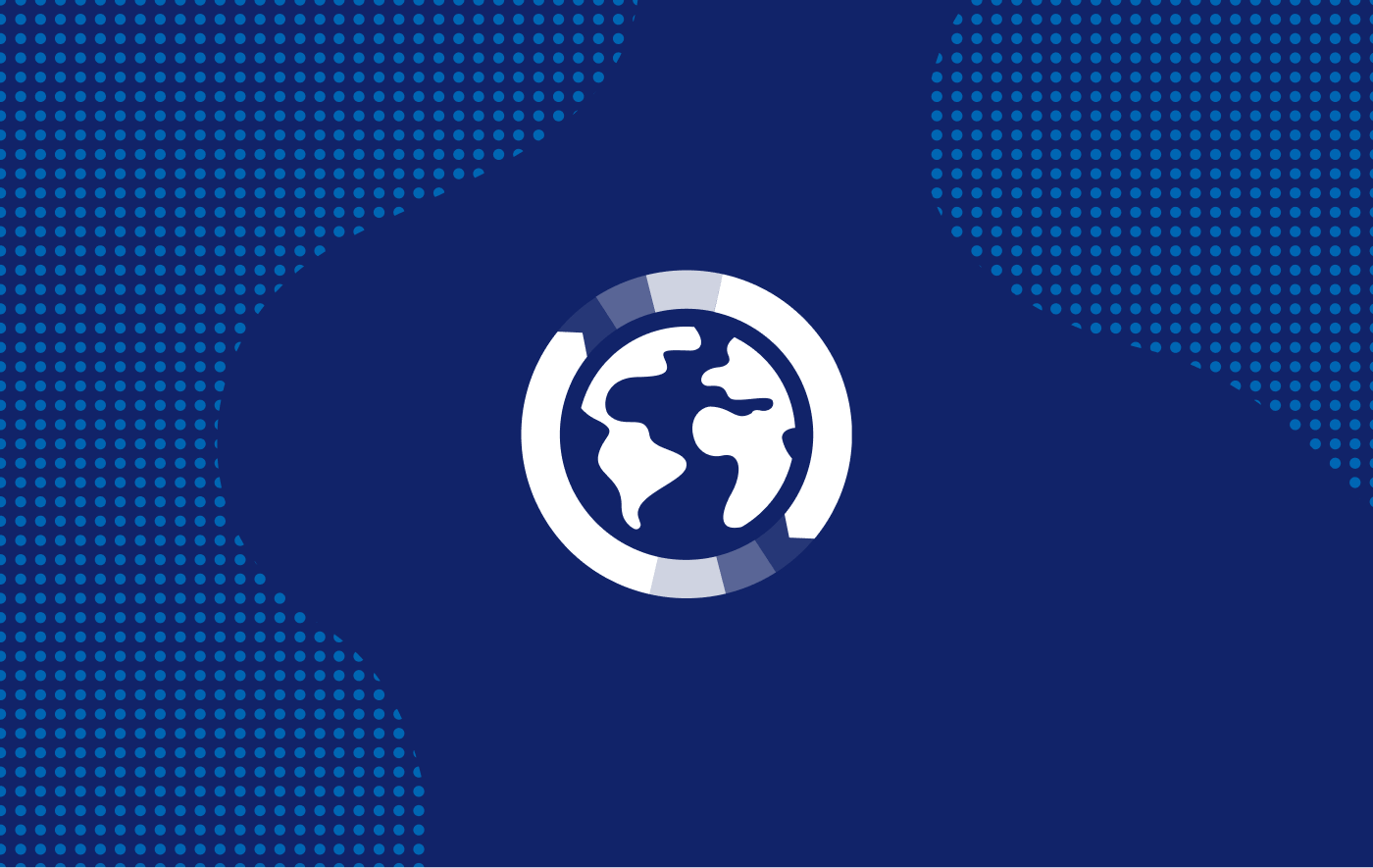
Interaction Member CEOs Send Public Letter to President Biden to Address Crisis in Gaza
InterAction and 50 member CEOs, including Global Communities’ President & CEO Carrie Hessler-Radelet, urged President Biden to take decisive and actionable steps to alleviate the …
Read More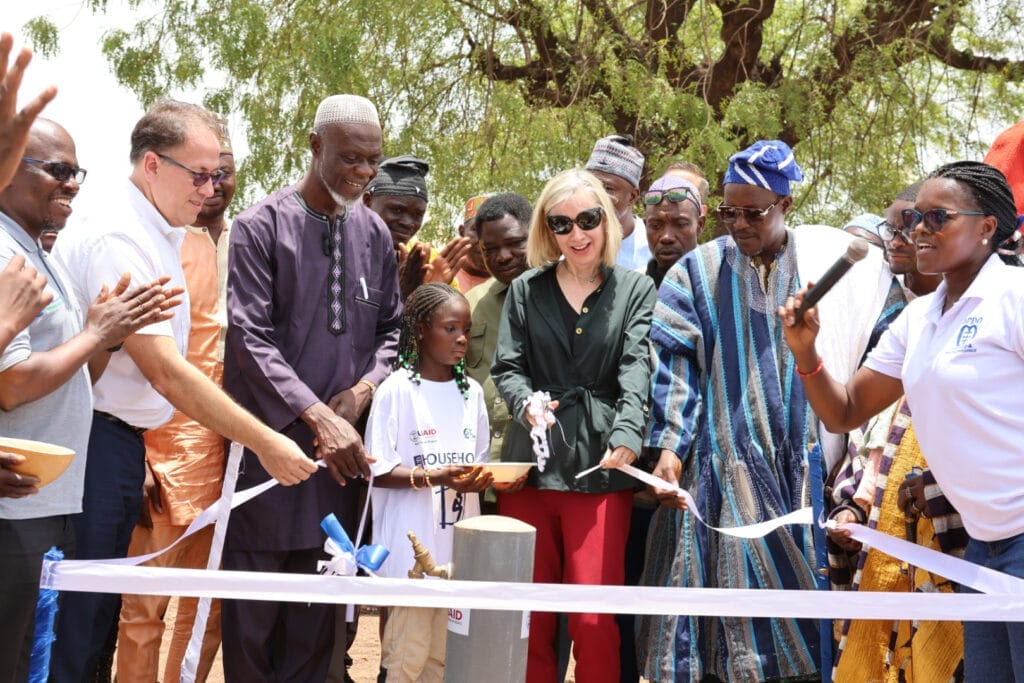
Commissioning Ceremony Marks Milestone for Water Accessibility in Northern Ghana
On April 18, a historic event unfolded in Nawuhugu, located in the Northern Region of Ghana, as community members, local chiefs, esteemed dignitaries and stakeholders …
Read More
Doses of Hope: Expanding Vaccine Access for Honduran Families
Immunizations are a cornerstone of global health, contributing to millions of lives saved. High vaccination rates limit the transmission of preventable diseases, protecting entire communities …
Read More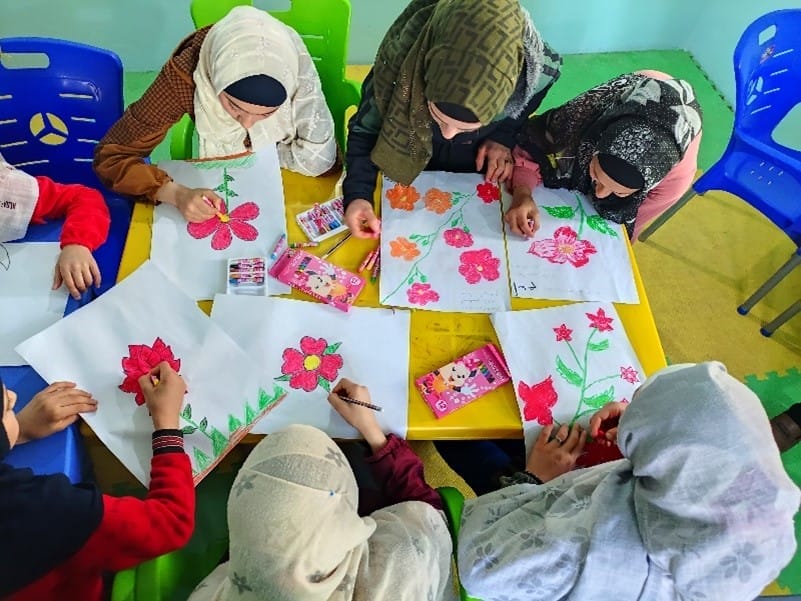
Protecting Children in Emergencies: Perspectives from Syria and Ukraine
By Emily Galloway, Tarek Fakhereddin, Nataliia Biloshytska and Tania Dudnyk Global Communities has a rich history of providing emergency aid and protection services to refugees …
Read More
